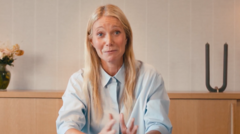As Singapore approaches its general election, the long-ruling People's Action Party is intensifying its social media efforts to connect with younger voters. In response to declining popularity, ministers are utilizing modern platforms like TikTok and engaging local influencers to appear more relatable and accessible. However, despite these campaigns, young voters express skepticism about government effectiveness in addressing rising living costs and job prospects.
Singapore's Ruling Party Shifts Tactics to Engage Youth Voters Ahead of General Election

Singapore's Ruling Party Shifts Tactics to Engage Youth Voters Ahead of General Election
The People’s Action Party embraces social media strategies to attract younger Singaporeans while navigating declining popularity ahead of the general election.
The general election in Singapore is drawing near, and the ruling People's Action Party (PAP) is making concerted efforts to engage the nation’s youth through strategic online campaigns. Traditionally known for its orthodox approach, the PAP has faced a notable shift in voter sentiment, particularly among younger demographics, who are increasingly leaning towards opposition parties in recent years.
The campaign kick-off features the health minister Ong Ye Kung sharing light moments in a TikTok video, set to the iconic Friends theme song, flanked by fellow team members from the PAP. This creative presentation reflects a broader strategy aimed at rebranding the party’s image as more relatable, as the PAP seeks to engage those disenchanted with its long-standing governance since 1959.
Understanding the importance of attracting younger voters, the PAP has overhauled its communications approach this election season by recruiting social media influencers and diversifying the formats of its outreach. From podcast discussions to fun skits, party leaders like Prime Minister Lawrence Wong are showcasing a more personable side through various creative platforms. Wong has been active on social media, featuring his musical talents and recent travels, while other ministers are engaging in entertaining content, like Edwin Tong’s barista stint in a video series.
While Singapore's PAP has dominated its political landscape, recent elections have shown a dip in support, dropping to just over 60% in popular votes. This change in sentiment underscores a growing urgency for the party to address youth concerns, particularly rising living costs and job security, which are prominently highlighted in the campaign narrative fueled by digital content. Recent polls indicate that many Singaporeans, especially young voters, feel the pinch of an increasingly expensive living environment with concerns over job opportunities bringing questions of government efficacy to the forefront.
Despite their robust resources for digital campaigning, opposition parties have also ramped up their social media presence to connect with younger audiences. Innovative campaigns have led to viral moments, demonstrating that political engagement is increasingly manifesting through entertaining and relatable content. Nevertheless, critics flag that while social media engagement grows, translating this interaction into voting decisions remains uncertain.
Experts note that while the digital landscape is valuable, it ultimately centers on issues that resonate most with the voters. For younger Singaporeans, the party that presents the most compelling solutions for economic anxieties may sway votes in the coming election. As candidates navigate this new political terrain, the power of social media will undoubtedly shape the dialogue, but lasting impressions will hinge on tangible political promises and policies addressing the nuances of youthful discontent.



















